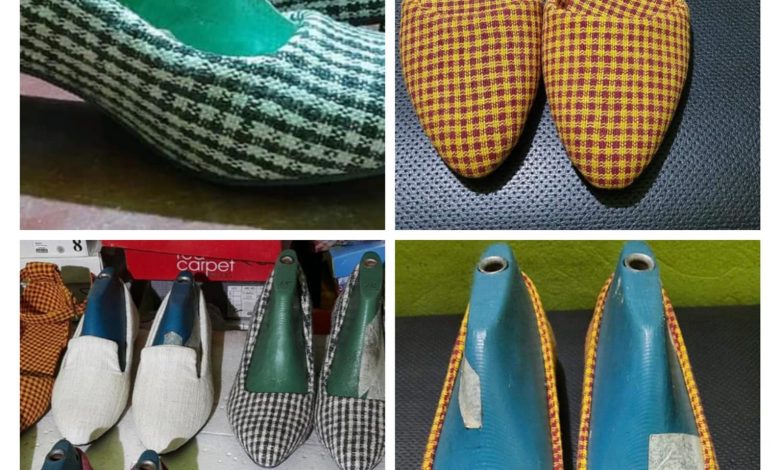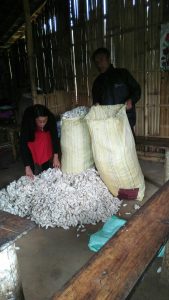Step out in style

Many in the northeastern region must be familiar with the knitted shoes of Muktamani Moirangthem in Manipur. But only a few have heard about the ryndia shoes of Bhoirymbong, Ri Bhoi. Raid Iapngar Handloom Weavers Cooperative Society is crafting a new style statement with the indigenous textile to blend ethnicity and contemporary fashion.
Formed in 2009 by Iaishah Rymbai, the cooperative has been working independently in producing and marketing eri silk products like shawls and stoles. But as the competition in the textile market grew, Rymbai felt the need for “something different”.
“I think we are the first in the state to make shoes with ryndia. We have tied up with shoemakers in Shillong. The production of the designer shoes started only this year,” Rymabi told Sunday Monitor on phone from Kdonghulu-Iapngar village in Bhoirymbong.
 The cooperative has 20 registered members and over 100 partners, which include silkworm rearers and workers. It has 15 weavers and more than 70 spinners.
The cooperative has 20 registered members and over 100 partners, which include silkworm rearers and workers. It has 15 weavers and more than 70 spinners.
The response to the designer shoes has been overwhelming and the cooperative received around 15 orders within a day of posting the photographs of the products on its Facebook page. “We customise the shoes as per the order. One can choose the fabric and style,” said Rymbai, adding that the products are marketed only in Shillong.
The ryndia shoes cost between Rs 1,500-2,000. Many people may think that ryndia is too expensive a fabric to be used for shoes but criticisms such as this can be put aside considering the fact that animal skin products are still high style statement and status symbol too despite the cruelty involved.
Rymbai said her cooperative runs mainly on the contributions from members. It received government aid in 2019. So far, Raid Iapngar cooperative has been using Facebook to promote the products. When asked about her plan to start ecommerce, Rymbai said the production is too less to meet the market demand.
Most of the members are farmers and work for the cooperative in their spare time. But the pandemic has affected the rhythm of their work. “Last year was not as bad as it is this year. This is because last year we had the yarn and our spinners and weavers could work. But this time the lockdown started even before we got the yarn. So, it was difficult to start work. This time of the year is usually the best for spinning and weaving,” Rymbai informed.
However, the cooperative members are hardworking and dedicated enough to overcome the hurdle and get back to weaving a unique style story.
(Photos from the cooperative’s Facebook page)




